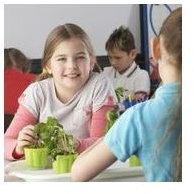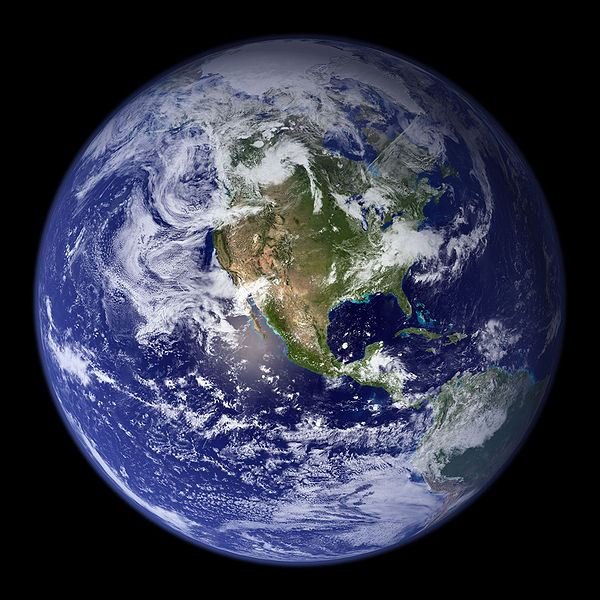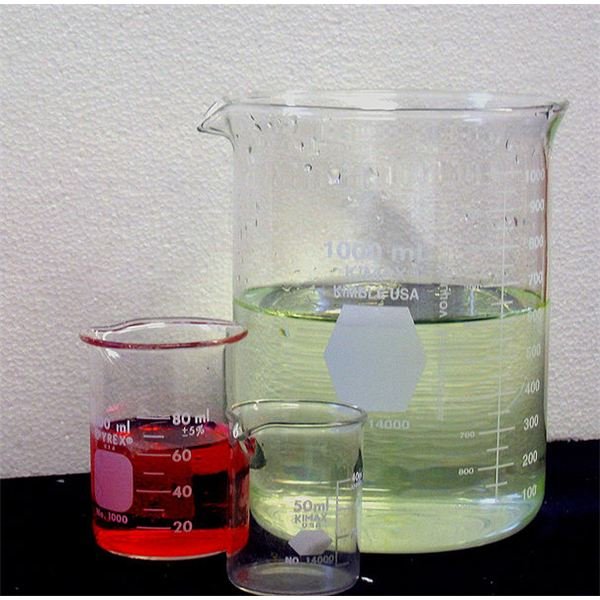Earth and Physical Science: 4th Grade Science Worksheets
Great Ideas for Fourth Grade Science Lessons
Concepts in science are best learned when there is a mixture of lecture, interaction among learners, experiments, and ample
opportunities for observation and analysis of the situation. Briefly, experiential learning is the way to teach science effectively. Thus, this article provides useful fourth grade science worksheets and downloadable activities that cater to all those learning strategies mentioned.
Let’s take a look at some ideas covering different topics.
Plants and Animals
Plants

- Parts of a plant.
Begin with a brief discussion on the parts of a plant. Then, take the students on a trip in the school garden. Allow them to walk around and to pick a leaf and a flower. Give instructions on how to do leaf rubbing and flower pressing, as these will serve as enrichment activities on the topic discussed.
Animals
- Animal cells.
Let the students explore the parts of animal cells to gain an understanding of the topic. Then, provide them with a worksheet on identifying the parts of an animal cell.
-
Animal Life Cycles A. Butterflies Organize a visit to a butterfly sanctuary. Then let the students draw in their notebook the phases in a butterfly’s life. B. Frogs Provide a brief discussion on a frog’s life cycle, and let the students complete a crossword puzzle about the topic.
-
Animal Adaptations
Let the students visit E-Safaris for an interactive and engaging way to learn all about animal adaptations. Afterwards, let them accomplish the activities and quiz found in the E-Safari to evaluate how much the students have learned.
- Classification of Animals
Provide information about the animal kingdom. Then, organize a class trip to a zoo, and let the students take pictures of the zoo animals. Afterwards, ask them to list in their notebook all the animals that they saw, and to classify them.
- The Food Chain
Discuss the concept of the food chain and food webs. Afterwards, let the students assess how much they have understood the topic by designing their own food chain.
Fossils and Extinction
- The Beginning of Life
Take the students to a natural history museum to observe and learn more about fossils. If a trip to a natural history museum is difficult, provide books from the library on fossils and extinction. After students have had time to learn and review the information, let them answer a crossword puzzle about the topic.
- What Causes Extinction?
You may present to the students some videos available on the Web about the causes of plant and animal extinction. Then, let them brainstorm ideas to preserve endangered plants and animals.
The Universe
- The Moon
Discuss all the topics about the moon - its phases and eclipses. Assign the students to observe the phases of the moon each night, and let them draw how the moon looked during each phase. Let them indicate the time and date when each phase occurred.
- The Planets and the Solar System
Provide information about the solar system, through either a video or a visit to a planetarium. Afterwards, assign the students to make a model of the solar system.
-

The Earth
You may present a video or some useful websites to teach the components, shape, size and other pertinent information about the Earth. Then, let the students make a model of the Earth by using a variety of materials, such as clay or paper (papier-mâché). The models are then presented to the class, and the reporters share their insights about the Earth.
- The Atmosphere
Discuss what makes up the Earth’s atmosphere and other related topics such as weather, climate, and humidity. Then, let the students deepen their understanding on the topics by doing an experiment in measuring humidity.
- The Water Cycle
Provide materials so that the students learn more about the concept of the water cycle.
Outside Science Activities
Here are suggested activities for applying science concepts learned, in which the students are given plenty of opportunities to go outdoors and practice their science skills.
1. Soil Collecting: This may be done when explaining the types of soil. The students walk around the garden or the local park, and collect sample of soils according to their classification.
2. Leaf Collecting: Let the students observe different kinds of leaves in the school garden. Then, have them collect leaves that may be used in a variety of experiments and art projects.
You can do other activities that use 4th grade science worksheets in your science class. Hone your students’ creativity and imagination by allowing many opportunities for them to observe, analyze, and synthesize new concepts learned.
References
- TeachThisWorksheets.com
- Photo Credits - WikiCommons.
- Science Teachers
